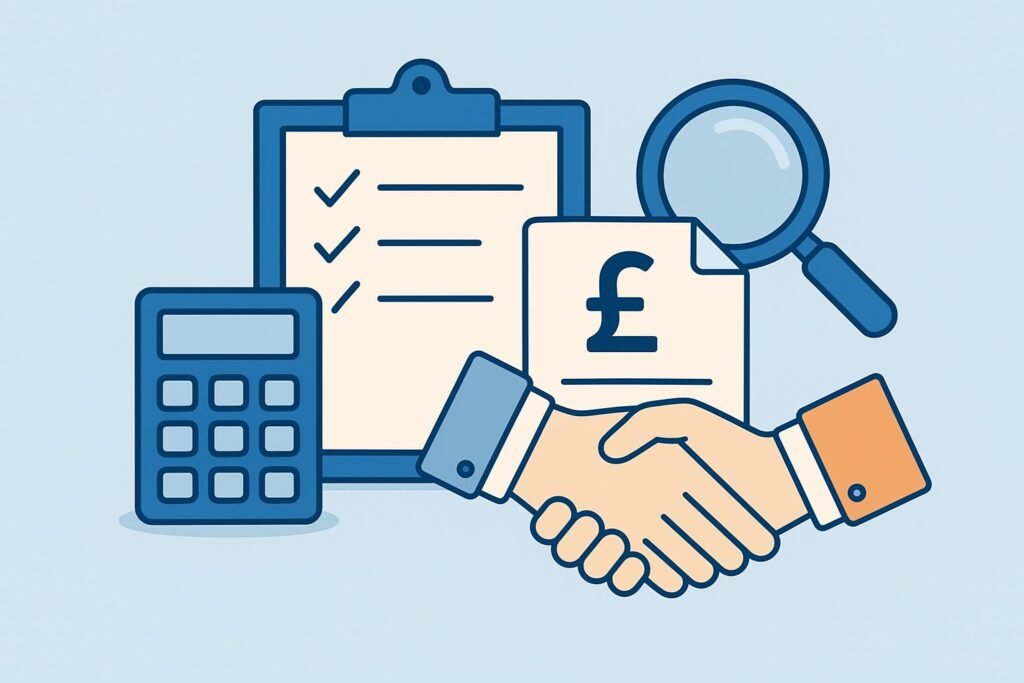
Most small limited company owners say their accountant is their most valuable advisor; a good accountant will keep your books in order, help with tax planning, and ensure you meet all your tax deadlines.
Limited company directors must file annual accounts with Companies House and a Company Tax Return to HMRC, so choosing the right accountant isn’t just helpful – it’s essential.
New research shows that SMEs that use an accountant boost their revenues by 11.5% on average!
Here are some tips from the ByteStart team to help you choose the best accountant.
How to find the best limited company accountant
1. Research your options early on
Consider choosing an accountant before you start your business, or as soon as you can, as they will be able to advise you on start-up expenditure and how to register with HMRC.
They will also be able to form a company on your behalf, register you for Corporation Tax (learn more about Corporation Tax), VAT, and set up your payroll if this is the route you want to take.
2. Make sure your accountant is qualified
Make sure that all prospective firms are regulated. Most firms are members of a recognised accountancy body such as the ICAEW (Chartered Accountants), ACCA (Certified Accountants), or ICAS (in Scotland).
3. Use a small limited company specialist
Make sure your accountant has experience working with other small businesses, particularly those within your industry.
If you are a contractor or freelancer, for example, you will typically be better off talking to a specialist contractor accountant rather than a ‘general’ firm, as there are specific tax laws you will need to be aware of, such as IR35.
4. How much will your accountant cost?
Find out what fees the accountant charges. Are they annual fees or monthly? Are there any entry or exit fees? How much will extra work be charged if it falls outside the agreed-upon tasks to be performed for your business?
Will they charge any ‘catch-up’ fees if you move from another accountant before your company’s year-end?
5. What services are included?
All accountants should carry out several core duties (such as setting up a payroll, completing your company’s annual accounts if you run a limited company, accounting for VAT, dealing with HMRC, etc.).
Will they also complete your self-assessment returns (which usually incur an additional cost), and provide references for mortgage/letting purposes? Do they provide IFA services?
6. Talk to several accountancy firms
Always contact several firms when choosing an accountant. You should get a feel of what it will be like as a client from your initial dealings with each firm.
It is essential that you feel like you can build a good relationship, so your intuition will be the best guide at this stage. Ask if you can meet each accountant and discuss your needs before signing up.
Visit ITContracting.com for a list of recommended limited company accountants.
Take a look at our list of sole trader accountants if you’re self-employed, rather than a company director.
7. What size of firm are you comfortable dealing with?
At ByteStart, we often find that smaller firms of accountants tend to understand the specific needs of smaller companies, and can usually be more ‘reactive’ than larger firms.
However, this is very much a personal decision, and you’re likely to get a ‘feel’ for one of the accountants you contact.
From personal experience, we suggest avoiding the larger ‘factory line’ accountants if you’re running a small business; profit is the key motive for many big players, rather than keeping clients happy.
| Firm type | Responsiveness | Typical cost | Specialisation | Communication style |
|---|---|---|---|---|
| Small boutique | High, direct contact with a partner | ££ | Niche sectors, owner-managed companies | Personal, proactive |
| Mid-size regional | Good, account manager model | ££–£££ | Broad SME coverage, some niche teams | Structured, process-led |
| National network | Varies, more layers | £££ | Wide service menu, strong compliance | Formal, ticket-based |
Small boutique
Responsiveness: High, direct partner
Typical cost: ££
Specialisation: Niche, owner-managed
Comms: Personal and proactive
Mid-size regional
Responsiveness: Good, AM model
Typical cost: ££–£££
Specialisation: Broad SME, some niche
Comms: Structured and process-led
National network
Responsiveness: Varies, more layers
Typical cost: £££
Specialisation: Wide menu, compliance
Comms: Formal, ticket-based
8. Communication
From our experience at ByteStart, our most significant problems with accountants involve poor communication.
Your business could face penalties if paperwork isn’t returned to HMRC and Companies House accurately and on time. Waiting days for a reply to a tax question can also be very frustrating.
9. Technology
Does your accountant work with all of the leading online accounting software packages, such as Xero, Sage and FreeAgent?
This type of software has revolutionised life for both accountants and their clients. It has never been easier to keep your accounts up to date and view the status of your payments and tax liabilities instantly.
If an accountant hasn’t adopted cloud software, avoid them at all costs – it’s essential these days. Ironically, thanks to cloud accounting software, it has also never been easier to switch accountants.
10. Recommendations from someone you trust
One final piece of advice is to ask other small business contacts if they recommend their own accountants. You cannot beat a recommendation from someone you trust.
Further Resources
For more information, try the ICAEW pages on choosing an accountant or the ACCA. Both have directories of member accountants.
If you’re self-employed, rather than a limited company director, read our guide to choosing a sole trader accountant.



